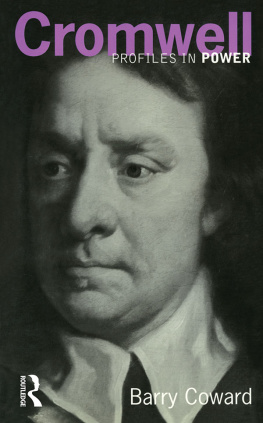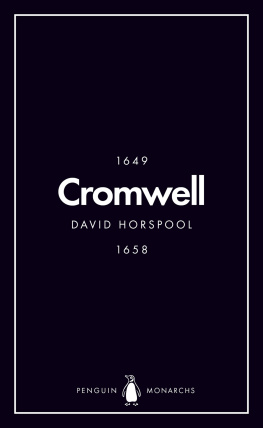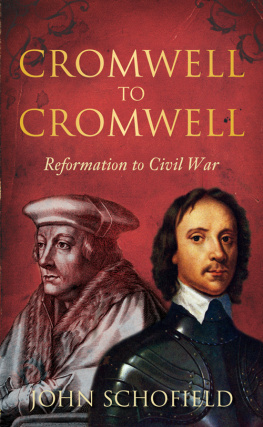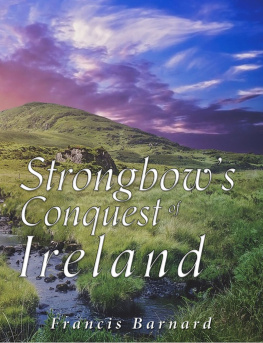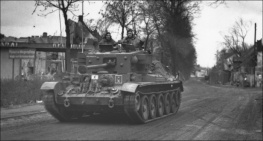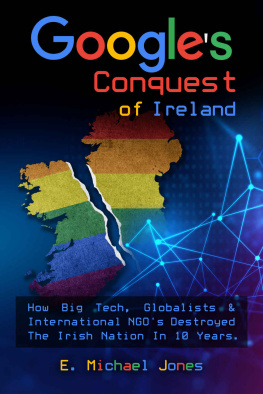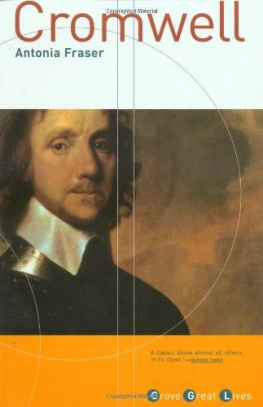Micheal O Siochru - God’s Executioner - Oliver Cromwell and the Conquest of Ireland
Here you can read online Micheal O Siochru - God’s Executioner - Oliver Cromwell and the Conquest of Ireland full text of the book (entire story) in english for free. Download pdf and epub, get meaning, cover and reviews about this ebook. year: 2008, genre: Politics. Description of the work, (preface) as well as reviews are available. Best literature library LitArk.com created for fans of good reading and offers a wide selection of genres:
Romance novel
Science fiction
Adventure
Detective
Science
History
Home and family
Prose
Art
Politics
Computer
Non-fiction
Religion
Business
Children
Humor
Choose a favorite category and find really read worthwhile books. Enjoy immersion in the world of imagination, feel the emotions of the characters or learn something new for yourself, make an fascinating discovery.

- Book:God’s Executioner - Oliver Cromwell and the Conquest of Ireland
- Author:
- Genre:
- Year:2008
- Rating:5 / 5
- Favourites:Add to favourites
- Your mark:
- 100
- 1
- 2
- 3
- 4
- 5
God’s Executioner - Oliver Cromwell and the Conquest of Ireland: summary, description and annotation
We offer to read an annotation, description, summary or preface (depends on what the author of the book "God’s Executioner - Oliver Cromwell and the Conquest of Ireland" wrote himself). If you haven't found the necessary information about the book — write in the comments, we will try to find it.
God’s Executioner - Oliver Cromwell and the Conquest of Ireland — read online for free the complete book (whole text) full work
Below is the text of the book, divided by pages. System saving the place of the last page read, allows you to conveniently read the book "God’s Executioner - Oliver Cromwell and the Conquest of Ireland" online for free, without having to search again every time where you left off. Put a bookmark, and you can go to the page where you finished reading at any time.
Font size:
Interval:
Bookmark:
This book is dedicated to the memory of
Derek OGrady (1966-2001) and
Teri Sternbergerova (1978-2004)
Oliver Cromwell (1599-1658). Portrait by Robert Walker, c.1649. National Portrait Gallery, London
Sir Phelim ONeill (1603-53). National Portrait Gallery, London
Owen Roe ONeill (c.1583-1649). British Library
King Charles I (1600-49). National Portrait Gallery, London Prince Rupert (1619-82). National Portrait Gallery, London Roger Boyle, Lord Broghill (1621-79). National Portrait Gallery, London
Colonel Michael Jones (c.1606-49). The Ashmolean, Oxford John Hewson (fl. 1630-60). National Portrait Gallery, London George Monck (1608-70). National Portrait Gallery, London Henry Ireton (c.1611-51). National Portrait Gallery, London Ulick Bourke, Marquis of Clanricarde (1604-58). National Portrait Gallery, London
King Charles II (1630-85). National Portrait Gallery, London Charles IV, Duke of Lorraine (1604-75). British Library
James Butler, 1st Duke of Ormond (1610-88). National Portrait Gallery, London
1 Ireland in the Seventeenth Century, 8
2 Confederate Wars, 1641-9, 36
3 Cromwells Campaign, August-December 1649, 94
4 Cromwells Campaign, January-May 1650, 118
5 Summer Campaigns, 1650, 138
6 Western Europe about 1650, 166
7 English Assault on Connacht, June 1651, 179
8 The Tory War, 1651-2, 196
9 Cromwellian Land Confiscation, 236
Research and writing are very solitary pursuits, but I received invaluable support from family, friends and colleagues in Ireland, Scotland and elsewhere during the course of this project. I am extremely grateful to them all, but there are a few who deserve a particular mention. My father Oisin and sister Mairead volunteered (or at least I think they volunteered) to read through drafts of each chapter as I produced them. Their insightful observations and seemingly limitless enthusiasm for the book sustained me throughout this time. Similarly, Jane Ohlmeyer has (as always) been hugely supportive, both as a friend and as a colleague, and her input is evident throughout the text. Aidan Clarke, John Morrill, Ian Gentles and Padraig Lenihan each provided an expert overview of the final draft, as well as detailed comments, and their influence on all my work is probably greater than any of them would care to acknowledge. Billy Kelly, Robert Armstrong, Tom OConnor, Ciaran Brady, Tom Bartlett, Tadhg 0 hAnnrachain, Dave Edwards, Sean Connolly and Patrick Little all share something of my unhealthy obsession with Early Modern Ireland, while in the wider academic community, various colleagues have inspired and encouraged me in equal part. The good friendship of three in particular, Andrew Mackillop, Eamonn 0 Ciardha, and Phil Withington has proved of inestimable value to me.
Other friends have looked over particular sections, and listened patiently as I explained (usually over a few pints) yet another allegedly interesting discovery. I am particularly grateful in that regard to Andrew, Cormac, Daithi, Darren, David D, Diarmuid, Eamon, Johnny, Mick and Paul, as well as to Ana, Anastasia, Anne, Audrey, Bennet, Brid, Carol, Cathal, Catherine, Cathy, Easter, Helen, Jacqui, Lauren, Liz, Lorna, Michal, Mick, Pauline, Peter, Siobhan and Terry for bearing with me over the past few years. Jeff and Naomi Vanderwolk provided a comfortable and fun base to work from in London for the best part of a year, and my parents allowed me to retreat to Baile na nGall once again to kick-start the writing process. Elly Rothnie and Elizabeth MacKnight both helped in locating images and securing permission to reproduce them (as did my father), while Grainne MacLoughlin kindly sent me advance copies of translations from the Commentarius project. Matthew Stout deserves a very special mention. He produced all nine maps, which are absolutely superb, putting an impressively professional gloss on my original (very poor) hand drawings. Walter Donohue of Faber has been the epitome of patience from the outset, and I am very grateful to Paula Turner for her assistance in preparing the manuscript for publication. I would also like to thank the Leverhulme Trust for granting me a two-year research fellowship to complete my primary research.
Despite the collaborative nature of the project, any mistakes in the text are of course wholly my own responsibility. As for the dates, I have adhered to the convention of dating according to the Old Style (Julian) calendar for the days and months, and the New Style (Gregorian) calendar for the year, when dealing with Ireland, England and Scotland. Individuals writing from continental Europe used the Gregorian calendar, with dual dating evident in some cases.
Events taking place outside Ireland, England and Scotland appear in italics
* This chronology is based on the relevant sections of T. W. Moody, E X. Martin and E J. Byrne (eds), A New History of Ireland, vol. 8 (Oxford, 1982) and Jane Ohlmeyer (ed.), Ireland from Independence to Occupation, 1641-1660 (Cambridge, 1995), supplemented by material listed in the bibliography.
17 January Peace treaty signed between James Butler, marquis of Ormond, and the Catholic confederates in Kilkenny
22 January Charles, Prince of Wales, invited to Ireland by Ormond
30 January Execution of Charles I at Whitehall
[January] Arrival of Prince Rupert with seven ships at Kinsale
January-March Civil war in France as Prince of Conde blockades Paris
5 February Charles Stuart proclaimed King of England, Scotland and Ireland by the Scots - Ormond makes a similar proclamation at Carrick on 16 February
13 February English parliament appoints executive Council of State
23 February Papal nuncio Giovanni Battista Rinuccini departs for France
17 March Monarchy formally abolished in England
19 March Abolition of the English House of Lords
30 March Oliver Cromwell approved as commander-in-chief in Ireland
March-May Failed negotiations in Holland between Charles Stuart and representatives of the Scottish parliament
8 May Truce concluded between Colonel George Monck and General Owen Roe ONeill
14 May Defeat of Leveller mutineers at Burford
19 May England declared a Commonwealth
[May] Murder of Isaac Dorislaus, representative of the English parliament, in Holland
5 June Parliamentary army ordered to leave for Ireland
July Plague reaches Galway from the continent
12 July Charles Stuart, having left Holland, arrives at St Germain in France
2 August Colonel Michael Jones defeats Ormond at Rathmines
15 August Cromwell lands at Ringsend near Dublin
[September] Arrival of Charles Stuart on the island of Jersey
11 September Fall of Drogheda to Cromwell
11 October Fall of Wexford to Cromwell
19 October Surrender of New Ross
20 October Treaty of agreement between Ormond and Owen Roe ONeill
October-November Revolt of the Munster towns from royalists to the parliamentarians
[October] Prince Ruperts royalist fleet escapes from Kinsale and takes refuge in Portugal
6 November Death of Owen Roe ONeill
20 November Fall of Carrick-on-Suir
24 November-2 December Waterford successfully withstands parliamentary siege
December Defeat of Sir George Monro near Lisburn
December Assembly of Catholic bishops at Clonmacnoise
December Scots surrender Carrickfergus to the English Parliament
[January] Hugh Rochford arrives at Jersey from Ireland
18 January Arrest of Prince of Conde by Mazarin (released February 1651)
Next pageFont size:
Interval:
Bookmark:
Similar books «God’s Executioner - Oliver Cromwell and the Conquest of Ireland»
Look at similar books to God’s Executioner - Oliver Cromwell and the Conquest of Ireland. We have selected literature similar in name and meaning in the hope of providing readers with more options to find new, interesting, not yet read works.
Discussion, reviews of the book God’s Executioner - Oliver Cromwell and the Conquest of Ireland and just readers' own opinions. Leave your comments, write what you think about the work, its meaning or the main characters. Specify what exactly you liked and what you didn't like, and why you think so.


